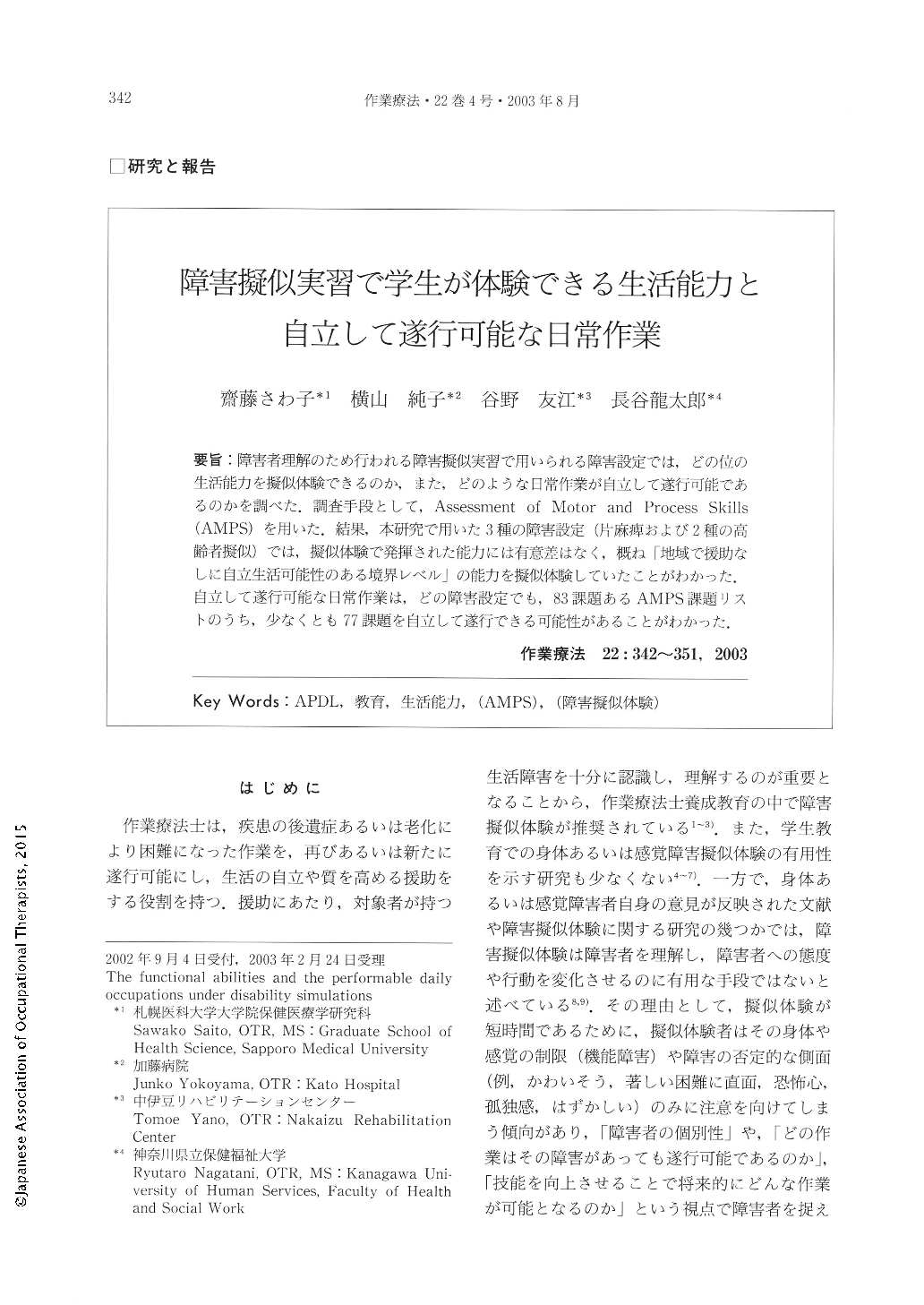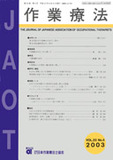Japanese
English
- 販売していません
- Abstract 文献概要
- 1ページ目 Look Inside
- 参考文献 Reference
- サイト内被引用 Cited by
要旨:障害者理解のため行われる障害擬似実習で用いられる障害設定では,どの位の生活能力を擬似体験できるのか,また,どのような日常作業が自立して遂行可能であるのかを調べた.調査手段として,Assessment of Motor and Process Skills(AMPS)を用いた.結果,本研究で用いた3種の障害設定(片麻痺および2種の高齢者擬似)では,擬似体験で発揮された能力には有意差はなく,概ね「地域で援助なしに自立生活可能性のある境界レベル」の能力を擬似体験していたことがわかった.自立して遂行可能な日常作業は,どの障害設定でも,83課題あるAMPS課題リストのうち,少なくとも77課題を自立して遂行できる可能性があることがわかった.
Disability simulations have been suggested to be an effective method for understanding people with disabilities. However, previous literature points out that disability simulations are of little worth because the people simulating disabilities tend to focus excessively on problems, difficulties or impairments, and have negative feelings toward people with disabilities (i.e., being isolated, embarrassment). The literature suggests that focusing on functional abilities and performable occupations by developing skills can be useful while simulating disabilities for the understanding of people with disabilities. Few disability simulation studies focus on functional abilities and performable occupations.
The purposes of this study was to examine 1) what settings of disability simulation give students an experience of varied levels of functional ability and 2) what daily occupations are performable while the students simulate disabilities. The thirty students were divided into three groups. Each group experienced simulating either people with left hemiplegia or elderly people. The Assessment of Motor and Process Skills (AMPS) was used to measure their functional abilities.
The result of this study has revealed that most students in all settings experienced the functional ability of people who may need minimum assistance for living in a community. It was also found that seventy-seven tasks out of eighty-three tasks in the AMPS task list were performable occupations for most participants while simulating the disability. The performable occupations include relatively difficult tasks such as cooking pasta and making green salad with drinks. The functional abilities of the participants simulating disability differed. This indicated that individual differences need to be considered when using disability simulation in class.

Copyright © 2003, Japanese Association of Occupational Therapists. All rights reserved.


